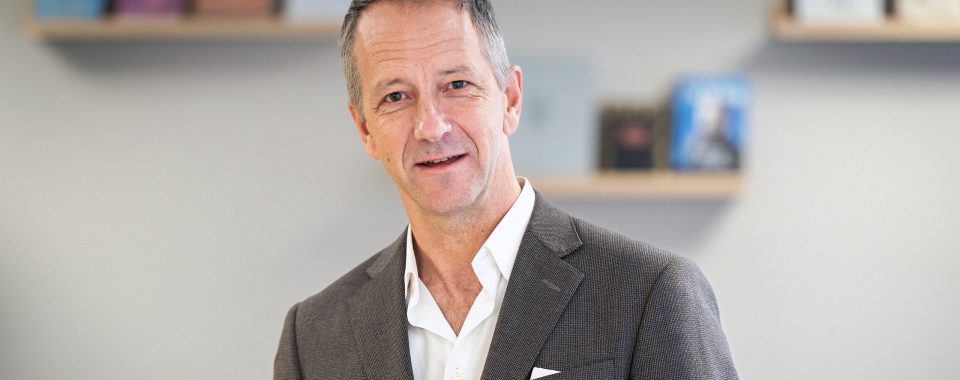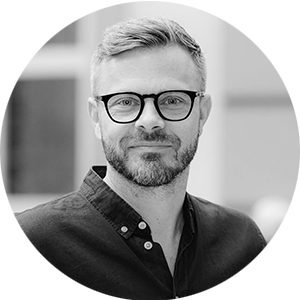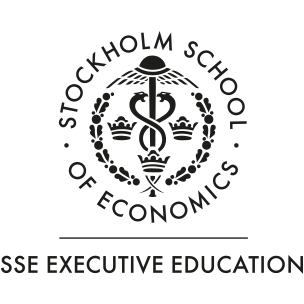
“The most relevant know-how for a project manager today – and tomorrow”
The program “Project Management – with leadership in focus” has been energized with the inclusion of the latest and most relevant content. So, what is required of a cutting-edge Project Manager nowadays? We asked Jesper Blomberg, Program Director, to tell us more about the changes.
The highly digitalized world is reflected in the program
“The program’s content and structure are the product of research findings, of the way the labor market looks today, and of its future development. And I don’t just mean research into traditional project management, but also into such fields as leadership, organization, and governance in a wholly or partly digital environment,” says Jesper.
Jesper says that the fact that we both live and work in a highly digitalized world nowadays should obviously be reflected in the program.
“The participants will, for example, have the chance to conduct practical exercises in organizing and managing online, and to compare these methodologies with offline ones.”
The program includes “traditional” project management, with both waterfall and more agile methodologies. But it doesn’t stop there, says Jesper.
“We don’t set any hard limits on what constitutes a project or project management. Projects are such an integral part of every organizational, management, and leadership format nowadays that training in how to lead projects must, if it is to be relevant, also include know-how drawn from multiple, broader areas.”
Jesper also mentions other relevant types of research that are included in the program, over and above specific project-related research. These include studies of management consultants’ project models and practice, contemporary psychological research into motivation and high-performance teams, and the latest organizational research into so-called algorithmic control in connection with digitalization.
“We’ve selected the most relevant know-how for today’s – and tomorrow’s – Project Managers. Quite simply, this program takes a big picture approach,” says Jesper.
“PROJECTS ARE SUCH AN INTEGRAL PART OF EVERY ORGANIZATIONAL, MANAGEMENT, AND LEADERSHIP FORMAT NOWADAYS THAT TRAINING IN HOW TO LEAD PROJECTS MUST, IF IT IS TO BE RELEVANT, ALSO INCLUDE KNOW-HOW DRAWN FROM MULTIPLE, BROADER AREAS.”
What do people gain from the program?
“Over and above the administrative ones, the program also addresses the more dynamic aspects of project management, such as personal leadership and group development. The human element, and the ability to ground your project management in your inner self, are important to the organization’s and project’s efficiency, development, and success,” says Jesper.
“Participants will deepen their knowledge of the ways in which our working life, organizations, and projects actually work, and how you can address them. And they may, as a result, also come to see themselves in a new light. What do I want, where do I want to go, and how do I want to get there? I want the participants to gain a deeper understanding of themselves and to develop their inner compass.”
Jesper says that doing so increases resilience and enhances stamina in one’s work, improving individuals’ personal well-being, and ensuring healthier leaders, colleagues, organizations, and projects that can handle and avoid long-term and unhealthy stress. It should also be noted that the more human and, perhaps, more personal knowledge goals, coupled with the swapping of experiences and group work that form part of the course, demand a great deal in terms of the participants’ commitment.
“WHEN YOU DON’T JUST SAY BUT CAN ALSO DEMONSTRATE IN PRACTICAL TERMS HOW THEORY CAN INCREASE UNDERSTANDING OF AND YOUR REPERTOIRE OF ACTION IN PRACTICE, THAT’S WHEN YOU, AS A PROGRAM PARTICIPANT, ARE TRULY ABLE TO DEVELOP AND LEARN AT A DEEPER LEVEL.”
“People shouldn’t expect a program where they just sit there, listening passively. There will obviously be elements that do entail that, but only as part of an otherwise interactive program in which projects, exercises, and discussions alternate with more traditional pedagogy. We combine the theoretical and the practical by looking more deeply into both of these areas of expertise. When you don’t just say but can also demonstrate in practical terms how theory can increase understanding of and your repertoire of action in practice, that’s when you, as a program participant, are truly able to develop and learn at a deeper level.”
Who could benefit from the “Project Management – with leadership in focus” program?
“The program is aimed at people with experience of project work or who work in a project-intensive sector and are keen to enhance their leadership skills. Less experienced participants may find much of the program completely new and interesting, while more experienced participants may find the same content challenging and something that turns their learned “truths” on their head. I’d also say that the program would be beneficial for a mix of different types of delegates from large and small organizations, and from different sectors – such as the public, private, non-profit, for-profit sectors. Much of the course is based on swapping experiences and sharing other people’s perspectives. The program involves a lot of learning that participants will find is of considerable practical benefit to them,” concludes Jesper.



